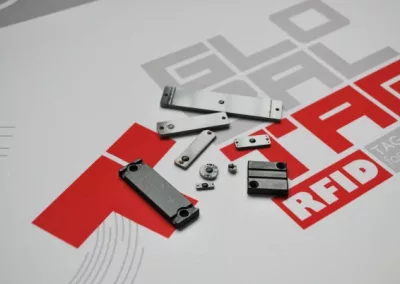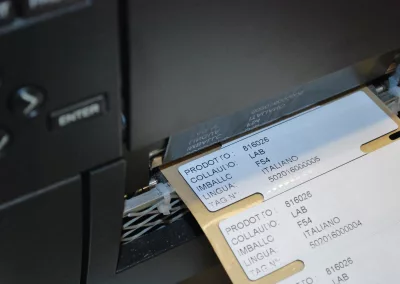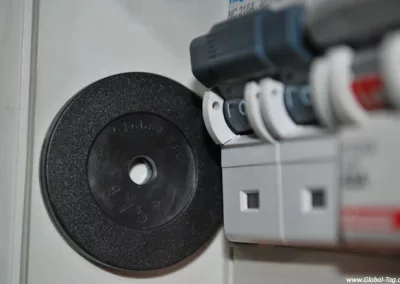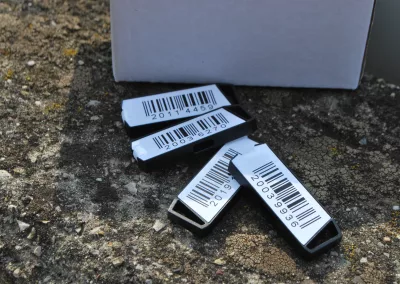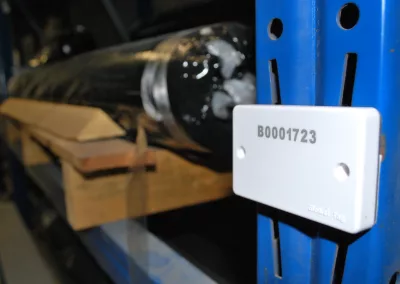BENEFITS
COMPLETE TRACEABILITY OF THE DRUMS’ LIFECYCLE
DRUMS AS REUSABLE ELEMENTS
SUPPORT OF A CIRCULAR ECONOMY MODEL
OPTIMIZATION OF RESOURCES AND REDUCTION OF WASTES
REDUCTION OF MANUAL INTERVENTIONS
ABILITY TO QUICK REACT TO ANY ISSUES
In the water distribution sector, managing and monitoring steel water kegs represents a significant challenge.
A beverage distributor addressed this challenge by adopting an RFID solution.
What role does RFID play?
The UHF Hardy tag, measuring 40x10mm, was chosen for its ability to operate on metallic surfaces and in harsh industrial environments such as washing and filling.
This tag, riveted to the drums through holes at its ends, provides each keg with a unique digital identity.
Each drum equipped with an RFID tag is recorded in the distributor’s management system during every phase of the drums’ lifecycle: washing, filling, distribution, and return. The data collected from the detected RFID tags is analyzed immediately, allowing precise and rapid traceability of each drum.
This process has improved drums management and quickly identified any problems or inefficiencies.
The introduction of RFID technology has enabled complete traceability of the drums, from the manufacturer to the end user, thus increasing process efficiency and reducing instances of non-returned drums.
The project transformed water drums into reusable elements, supporting a circular economy model that reduced waste and optimized resource use.
Monitoring and management of the drums have been optimized, also reducing manual interventions and streamlining operational processes, thus leading to a significant reduction in costs.
The ability to collect and analyze data in real-time has improved the control of the distribution process.
This has allowed the distributor to react quickly to any problems and further optimize operations.
The implementation of the UHF Hardy RFID technology has transformed the management of water drums for this distributor, ensuring complete traceability, reducing costs, and supporting a circular economy model.







